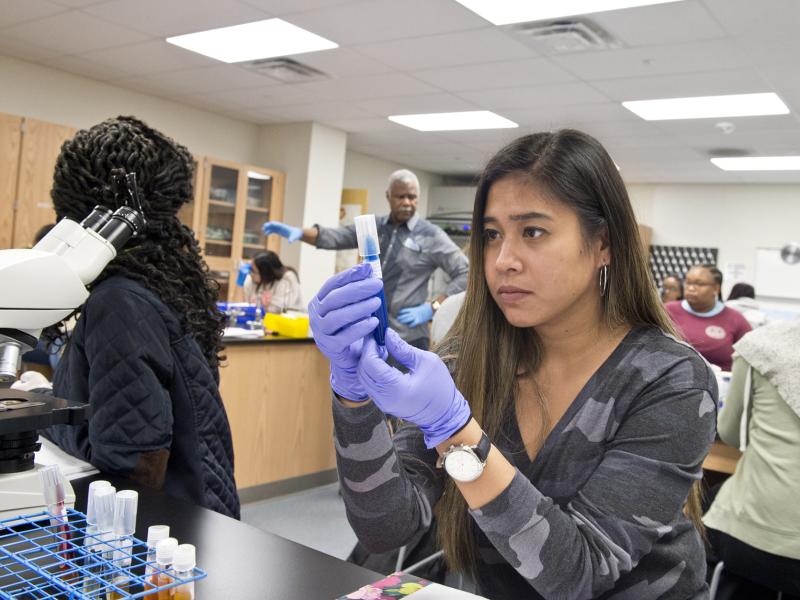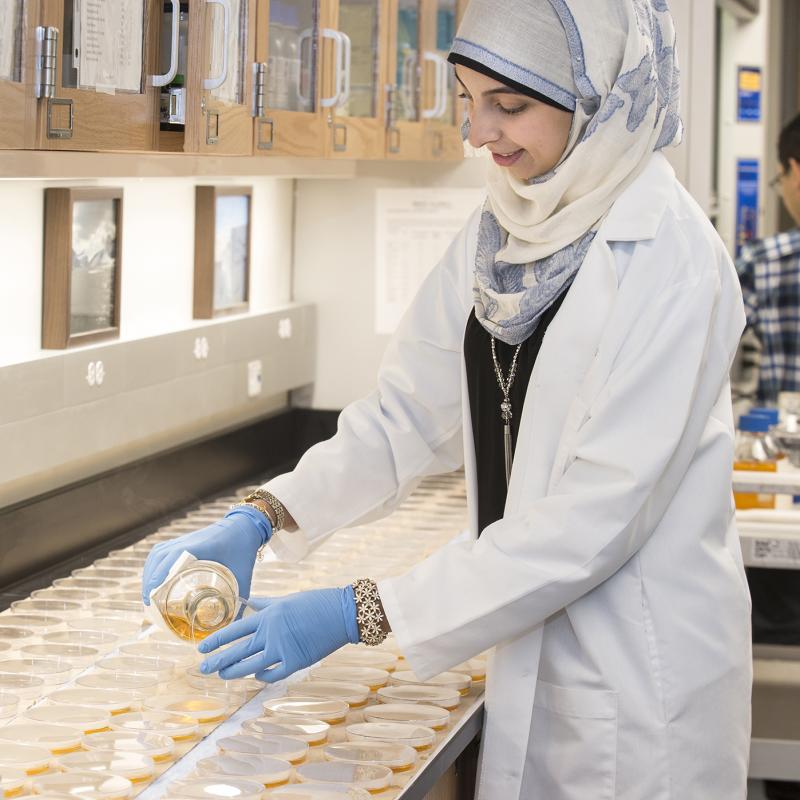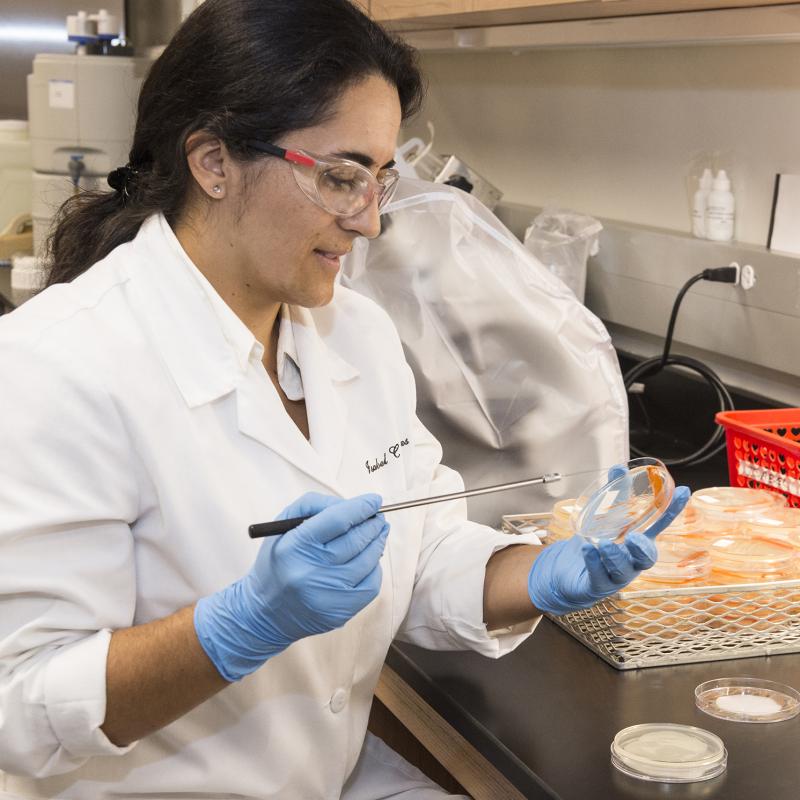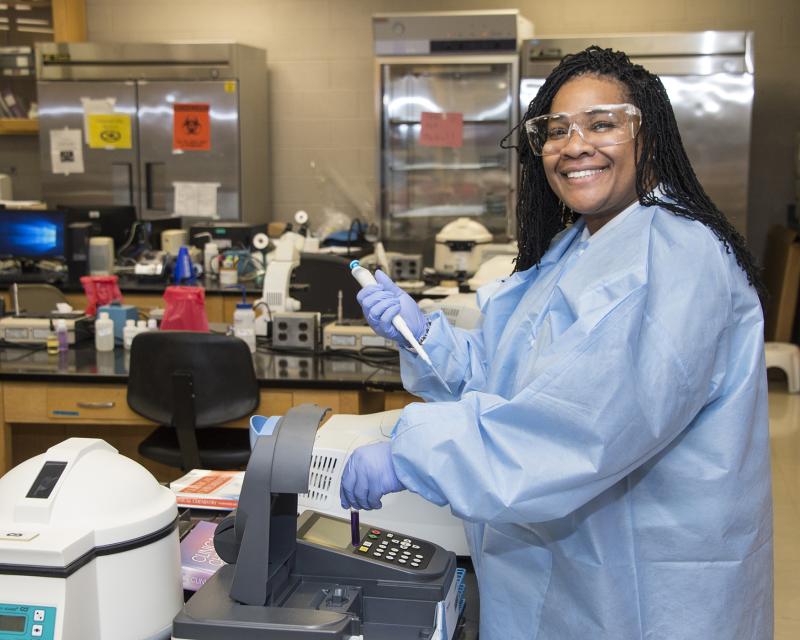-
Program Duration: 2 Year Program
-
Degree Type: Associate in Science (A.S.)
-
Total Credit Hours: 60

About This Program
As a chemistry student, you will learn how to use the measuring and analysis equipment in a modern chemistry lab while competently performing routine laboratory tasks. As you progress in the course, you will conduct experiments and solve problems based in general inorganic and organic chemistry principles in order to collect, interpret and communicate scientific data in multiple formats. The Chemistry degree program equips students with the foundation necessary for transfer to at a four-year institution, so you can confidently continue your studies in the chemical or physical sciences field.
The Academic Passport, a policy of the Pennsylvania State System of Higher Education (PASSHE), guarantees admission to any of the 14 PASSHE universities to a student with an earned AA or AS degree from a Pennsylvania public community college. A university can stipulate that the associate's degree contain at least 30 credits of liberal arts courses. The Academic Passport does not guarantee admission to specific majors.

Launch Your Career in Chemistry
- Food Scientists and Technologists est. salary $96,922
- Chemical Technician est. salary $60,299
- Soil and Plant Scientists est. salary $70,407
Career Outlook
Median Salary of a Clinical Research Coordinator
Number of Jobs in the Region
10-year Job Outlook in the Region for a Clinical Research Coordinator
Clinical Research Coordinator
Plan, direct, or coordinate clinical research projects. Direct the activities of workers engaged in clinical research projects to ensure compliance with protocols and overall clinical objectives. May evaluate and analyze clinical data.
Starting Pay: $97,786

Typical Tasks
- Maintain required records of study activity including case report forms, drug dispensation records, or regulatory forms.
- Oversee subject enrollment to ensure that informed consent is properly obtained and documented.
- Monitor study activities to ensure compliance with protocols and with all relevant local, federal, and state regulatory and institutional polices.
- Record adverse event and side effect data and confer with investigators regarding the reporting of events to oversight agencies.
- Assess eligibility of potential subjects through methods such as screening interviews, reviews of medical records, and discussions with physicians and nurses.
Explore Related Programs
Let's Get Started





